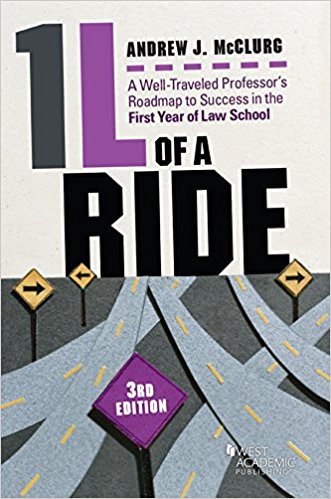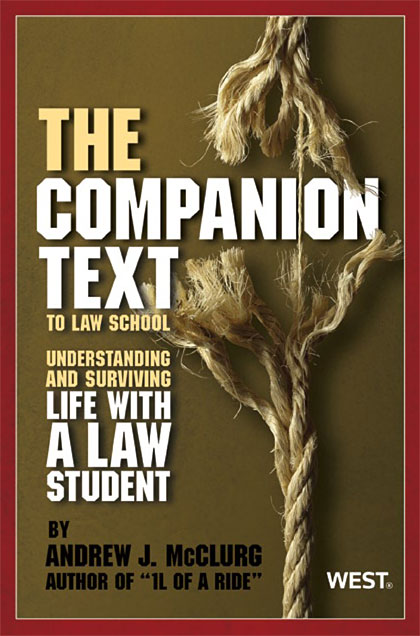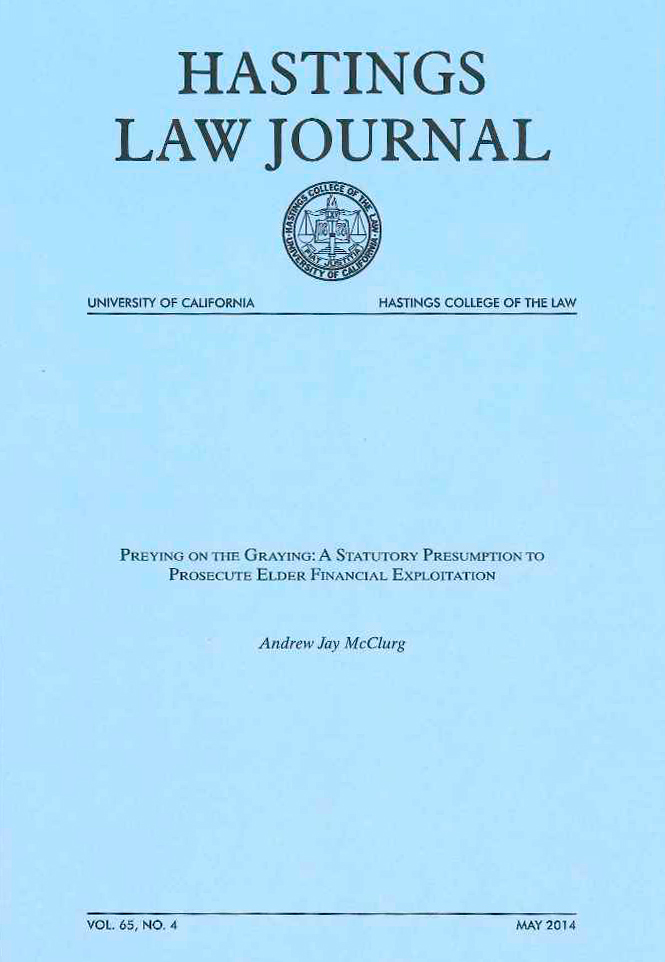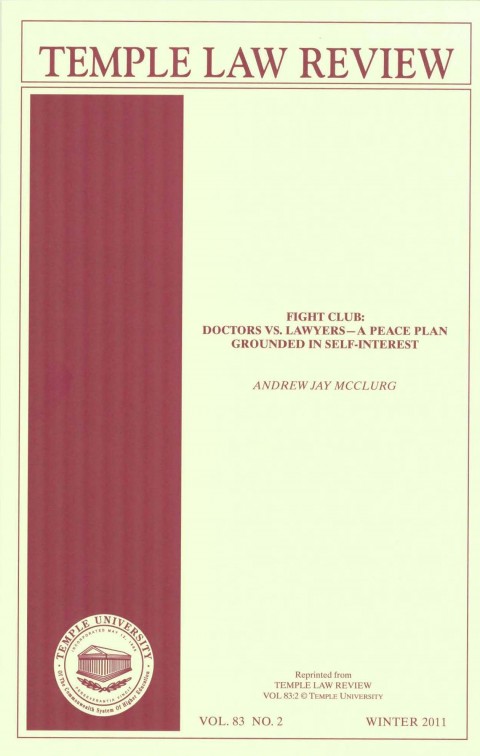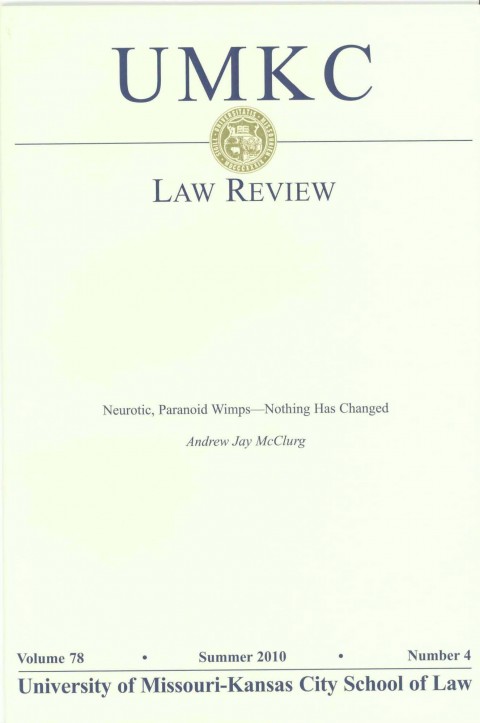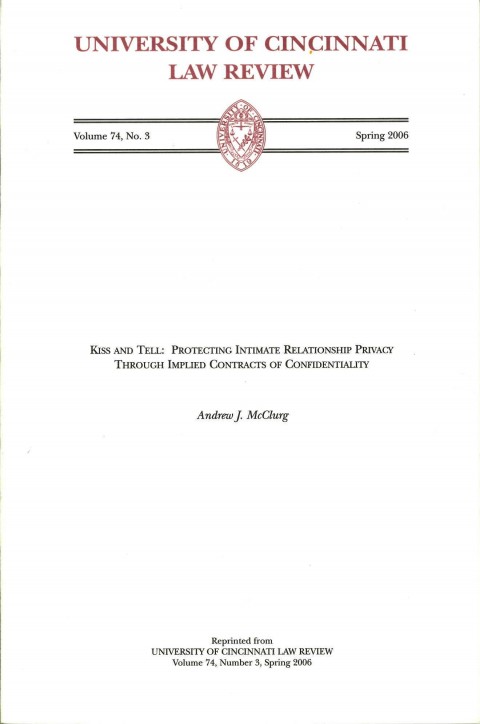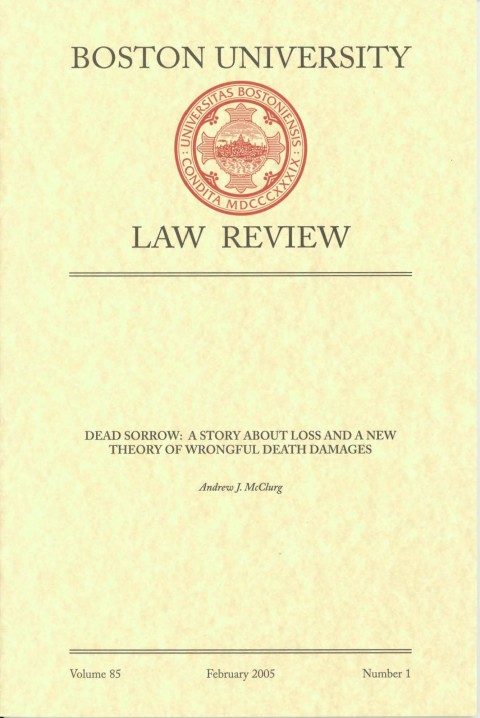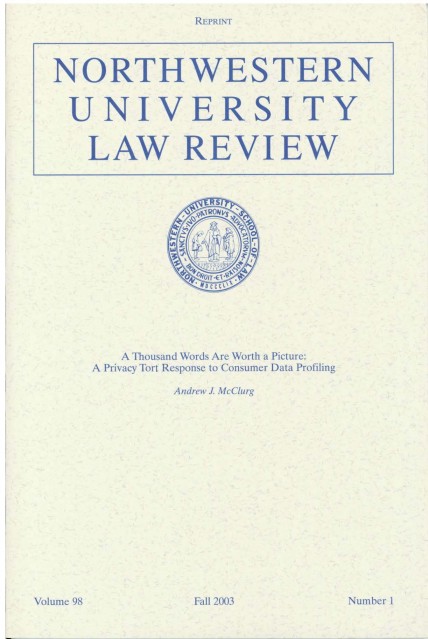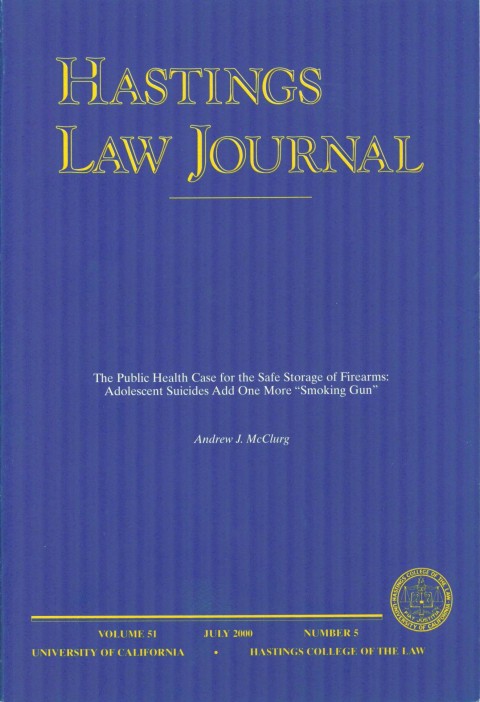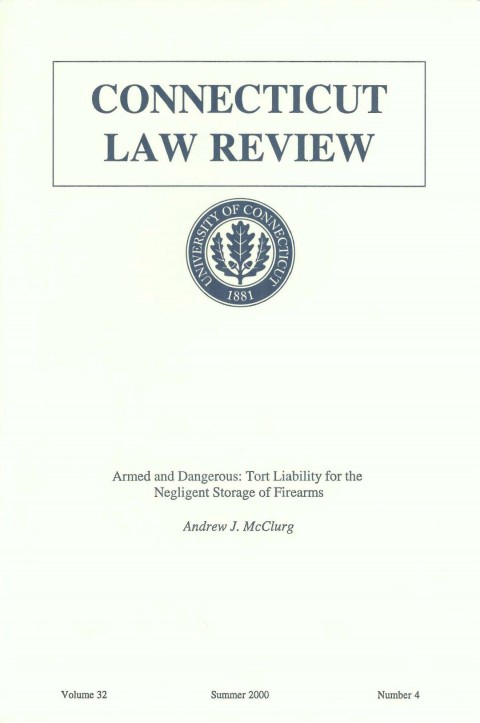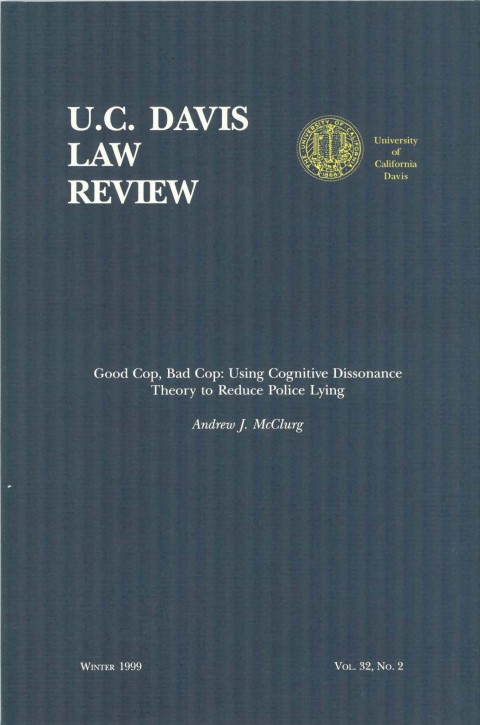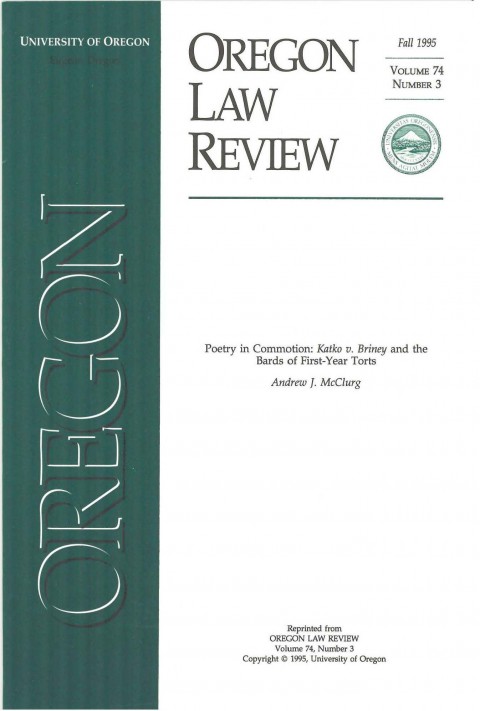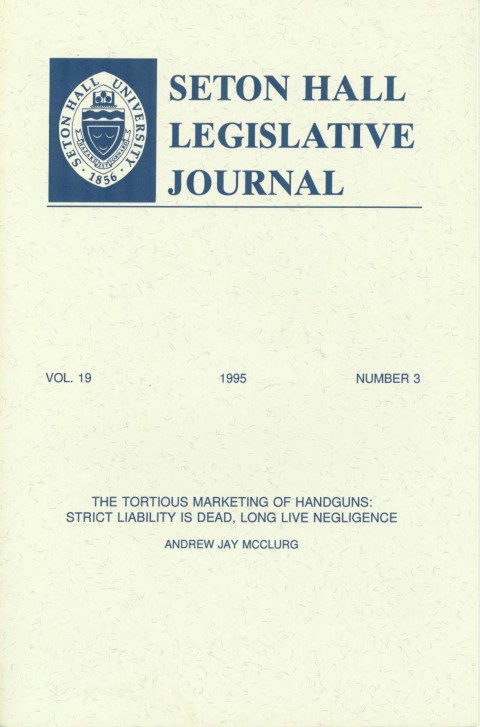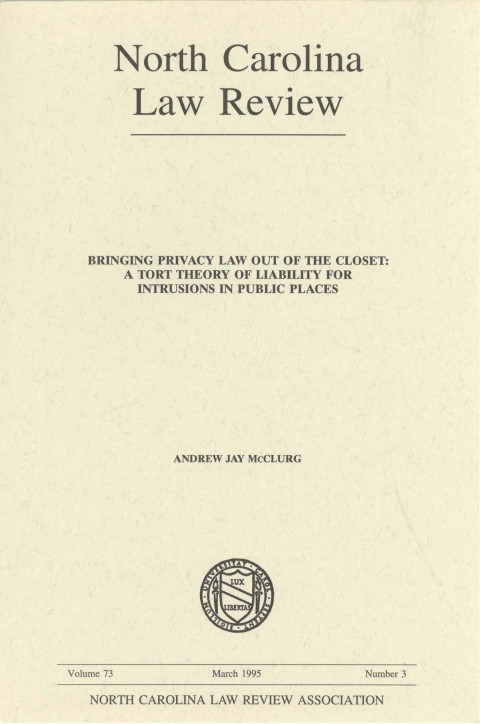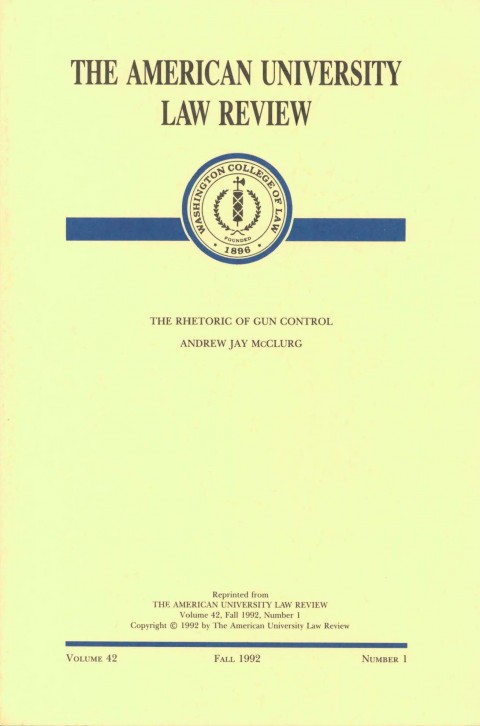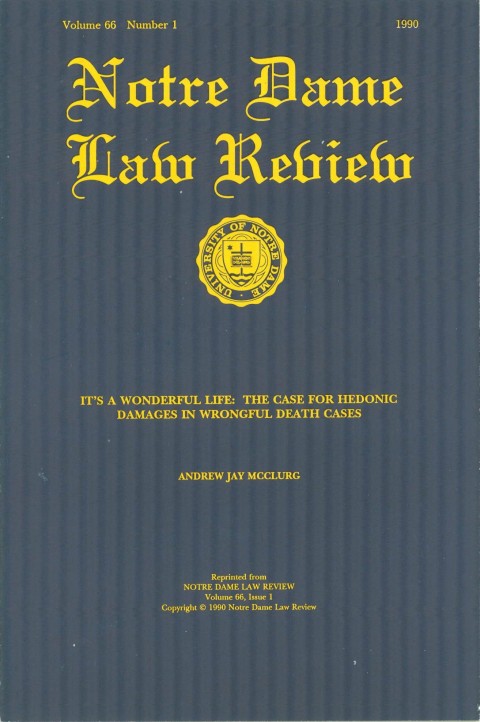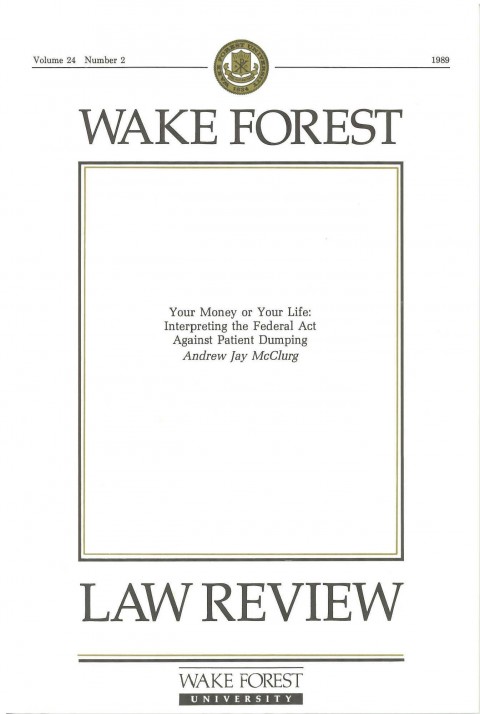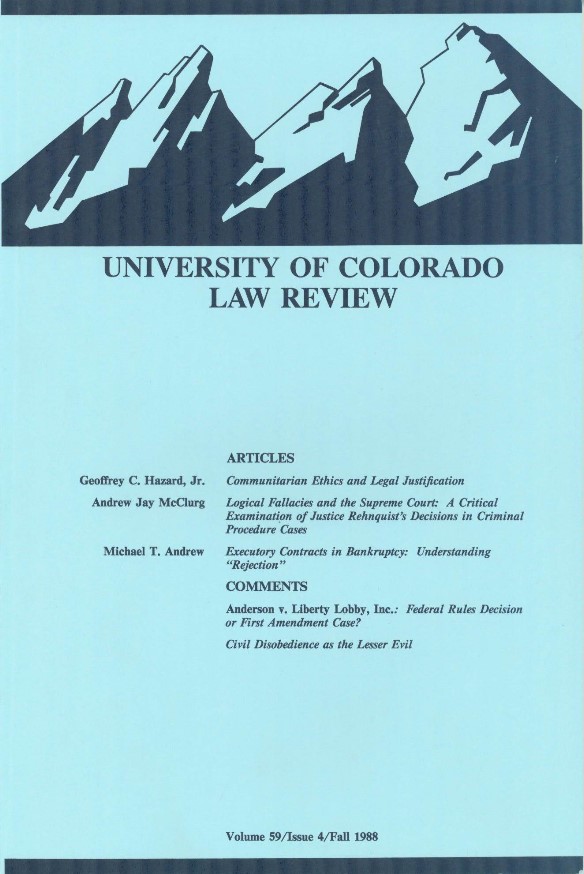June 3rd, 2012 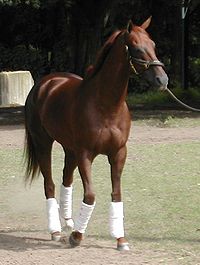 Triple Crown threat Funny Cide caught up in weird judicial opinion. The total weirdness of Florida Court of Appeals Judge Farmer’s opinion in Funny Cide Ventures, LLC v. Miami Herald Publ’g Co. gets the case into Lawhaha.com’s Strange Judicial Opinions Hall of Fame.
Here’s a first in judicial writing: an appellate judge writes an opinion in an offbeat fiction-style based on a tune from Guys and Dolls, can’t get the other judges to go along with his approach, so decides to attach his creative opinion to the court’s per curiam opinion together with a lengthy preface explaining his unique approach to written adjudication.
Confused? Let’s back up. In 2003, Funny Cide won both the Kentucky Derby and the Preakness, one race away from the Triple Crown.
After the Kentucky Derby, the Miami Herald published an article implying that the jockey cheated by using some kind of illegal battery-powered device during the race. The Herald later admitted it made an error and retracted the story. Meanwhile, Funny Cide placed third at the Belmont, missing out on becoming only the twelfth horse in history to win the Triple Crown.
In a lawsuit for injurious falsehood against the Herald, Funny Cide’s owners claimed the article caused substantial damage, including the chance to win the Belmont because “the article caused the jockey to over-ride the horse in the Preakness in an attempt to vindicate himself.”
The defendant moved for summary judgment, which was granted on the ground that the plaintiffs had not alleged direct and immediate damages from the article. The appellate court affirmed in a brief per curiam opinion.
So far, so good.
Then the reader stumbles on Judge Farmer’s … not sure what to call it … tacked on at the end of the court’s opinion. It’s not a concurring or dissenting opinion, and is not labeled as an appendix.
His “attachment” to the majority opinion is not a dissent from the reasoning of his brethren’s opinion, but the boring way in which they expressed it.
Judge Farmer starts by assailing traditional stilted judicial opinion writing, then explains why a humanized, pot-boiler narrative approach might be better. He concludes by suggesting readers compare the two approaches–his and the majority’s–and decide which is better.
Basically, he seemed to be saying: “Hey, I labored over writing this really fun and wild opinion, but these dudes I work with on the court are too straitlaced to get it, so here it is for your reading pleasure.”
Here are excerpts, first, from his attack on traditional judicial opinion writing:
Most [judicial opinions are] … dreary and tedious. …
A surprising number are way too long. There is often a painstaking account of background and trial which turns out to be unnecessary to grasp the essential issues to be decided. Many have extended discussions of rules and principles no one really challenges, or few would dispute. Judges pile on needless details of date, time and place, modified by confusing identifying terms (appellant-cross appellee-defendant) without regard to clarity. Extended comparative quotations alternate with exposition of one sort or another. Legal issues are analyzed through mind-numbing, many-factored “tests”. Each factor is unloaded nit by nit, as though the judges actually decided the dispute in precisely that way. Arcane legal terminology is woven in and out, even though simpler, plainer words could be used. Simplicity, tone, style, voice, personality, levity-all are shunned.
Judge Farmer concedes he’s been guilty of what he describes, then sets out to change his opinion-writing ways:
From the very moment of my appointment as a judge, I have chafed under this norm for appellate opinion writing. How did it become conventional? Who made it required? Why hasn’t it been changed?
I struggled against it. There must be other styles, different tones, alternate voices. Not for every opinion. But for some.
One technique occurred to me. This idea would have an opinion in some of the forms, styles and characteristics associated with fiction. Good fiction is set in human experience. Good fiction illuminates.
***
I had decided that the style of some opinions could-and should-be unconventionally changed for greater openness to all readers. I would try to write some opinions in styles and tones calculated to make legal reasoning clearer for those without law degrees. Then came this case.
When the panel conferred after oral argument, I did not detect any disagreement. … So after thinking on the matter, I conceived of an unconventional approach. I would try a style, a tone, a voice to make apparent even to non-lawyers what I believed is the basic defect in their argument. The very style of the opinion itself would illuminate the legal analysis and outcome.
As it turns out, the other two members of the panel could not endorse the opinion or even some slightly altered version. They had concerns. Some other judges shared them. So I give this explanation for what I wrote, laying my version along side the panel’s substitute. Readers can compare a conventional opinion with an unconventional style-the pious with the impious.
Then comes the opinion. Here’s an excerpt, inspired by the opening song of Guys and Dolls, Fugue for the Tinhorns:
Then the horse won the Preakness Stakes. And it’s not even close. Wins by nearly ten lengths. The horse is so far out front, looks like he could make it past the wire and into the barn before they can take the photo. Hardly anyone asked if the horse ran out of gas for the Belmont. Are you kidding? Racing was all stirred up about the Crown. The feedbox noise grew hot.
Was it a dream, or did I hear stories about a guy who read in the paper the horse wins it all by a half? About another guy who said it was no bum steer, it was from a handicapper that’s real sincere? Even about a third guy who knew this is the horse’s time because his father’s jockey’s brother’s a friend?
Whatever. It’s a lock. Two jewels for the Crown. Make room for the third.
Only, wait a minute. Did I hear another story about this one guy who wasn’t so sure? Said it all depends if it rained last night?
For the life of me, I can’t understand why the other judges on the panel were hesitant to join in this opinion.
— Funny Cide Ventures, LLC v. Miami Herald Publ’g Co., 955 So.2d 1241, 1243–47 (Fla. Dist. Ct. App. 2007). Thanks to Kevin McDowell and James Heelan.
May 27th, 2012  Bird expert "thinks" this might be a bird. In U.S. v. Byrnes, the defendant was convicted of making false statements to a grand jury investigating illegal trafficking in exotic birds. The issue involved the materiality of statements as to whether some illegally imported swans and geese were dead or live when the defendant received them.
To bolster its case, the government called a collector of Australian parrots who testified the defendant had delivered some swans and geese to her. Defense counsel cross-examined the witness, an immigrant from Germany who had difficulty speaking English, in an apparent effort to challenge her credibility as a bird expert. Here’s the interesting colloquy:
Q. Mrs. Meffert, do you recall testifying yesterday about your definition of birds?
A. Yes.
Q. And do you recall that you said that the swans and geese were not birds?
A. Not to me.
Q. What do you mean by that, “not to me?”
A. By me, the swans are waterfowls.
Shortly thereafter, Mrs. Meffert was cross examined as follows:
Q. Are sparrows birds?
A. I think so, sure.
Q. Is a crow a bird?
A. I think so.
Q. Is a parrot a bird?
A. Not to me.
Q. How about a seagull, is that a bird?
A. To me it is a seagull, I don’t know what it is to other people.
Q. Is it a bird to you as well or not?
A. To me it is a seagull. I don’t know any other definition for it.
Q. Is an eagle a bird?
A. I guess so.
Q. Is a swallow a bird?
A. I don’t know what a swallow is, sir.
Q. Is a duck a bird?
A. Not to me, it is a duck.
Q. But not a bird.
A. No, to other people maybe.
The government stipulated that swans and geese are birds.
Because it makes me laugh every time I read it, this opinion gains entry to the Strange Judicial Opinions Hall of Fame.
— United States v. Byrnes, 644 F.2d 107, 110 n.7 (2nd Cir. 1981). Thanks to Walter Fitzpatrick.
April 4th, 2012  “Excuse me, I’d like to have a few words with you about the litter box issue.” Miles v. City Council of Augusta, GA—starring “Blackie the Talking Cat”—is our kind of case: completely WEIRD, so weird that it qualifies for Lawhaha.com’s Strange Judicial Opinions Hall of Fame.
The plaintiffs, Carl and Elaine Mills, were an unemployed, married couple who owned Blackie, a cat who could allegedly speak English. The plaintiffs were entrepreneurs in the true American mold, making their entire living marketing Blackie’s unique vocal abilities to the public. Although the closest Blackie ever came to making the big time was a $500 appearance on “That’s Incredible” in 1980, he generated steady income for Carl and Elaine by talking to strangers on the street in return for contributions.
After receiving complaints, the Augusta Police Department warned Carl and Elaine that they needed to obtain a business license to continue peddling Blackie’s talents on the streets of Augusta. Plaintiffs sued the city, alleging the occupational license tax was unconstitutional.
The whole opinion is interesting, but the craziest part was the trial judge’s disclosure in a footnote of an ex parte street encounter with Blackie (some paragraph breaks inserted):
In ruling on the motions for summary judgment, the Court has considered only the evidence in the file. However, it should be disclosed that I have seen and heard a demonstration of Blackie’s abilities.
The point in time of the Court’s view was late summer, 1982, well after the events contended in this lawsuit. One afternoon when crossing Greene Street in an automobile, I spotted in the median a man accompanied by a cat and a woman. The black cat was draped over his shoulder. Knowing the matter to be in litigation, and suspecting the cat was Blackie, I thought twice before stopping. Observing, however, that counsel for neither side was present and that any citizen on the street could have happened by chance upon this scene, I spoke, and the man with the cat eagerly responded to my greeting.
I asked him if his cat could talk. He said he could, and if I would pull over on the side street he would show me. I did, and he did. The cat was wearing a collar, two harnesses and a leash. Held and stroked by the man Blackie said “I love you” and “I want my Mama.”
The man then explained that the cat was the sole source of income for him and his wife and requested a donation which was provided. I felt that my dollar was well spent …
I never understood why a cat that could talk didn’t become more famous.
— Miles v. City Council of Augusta, Ga., 551 F. Supp. 349, 350 n.1 (S.D. Ga. 1982). Thanks to Richard McKewen.
December 15th, 2011 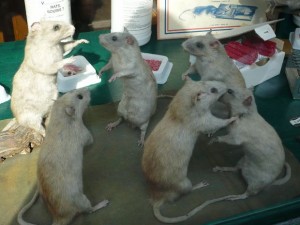 Rats, agitated about their shrinking legal rights after judge rules that squirrels are better than them. In a 1954 Georgia case, an insured sued his insurance company for property damage caused by a squirrel. The insurance company denied coverage under an exclusion for “vermin.” The issue was whether squirrels are vermin or some higher grade species. The court ruled for the plaintiff, stating (some paragraph breaks inserted):
The brief of counsel for the defendant in error (which, incidentally; includes an excellent recipe for squirrel stew) concludes with the following words, with which this court is inclined to agree:
“‘Vermin’ is a mighty harsh word to hurl at our little friend the squirrel. He has long been well considered and much thought of as a pet and an attractive addition to the scenery of any city, garden, or country yard. He is praised in song and story as a shining example to mankind of industry and thrift. It is respectfully submitted that this court should not label the little fellow as nothing more than ‘vermin’.”
It is all the easier to agree with this encomium, as the question of whether squirrels are vermin was submitted to the jury, and the plaintiff offered without objection a wealth of technical and opinion evidence to the effect that it is not so classified (vermin being “any noxious, mischievous or disgusting animal”), whereas the defendant failed to place our furry friend within the limitations of this category.
He certainly does not belong there as a matter of law, and as a matter of fact we are well content to leave the verdict undisturbed, there being no evidence to the contrary.
Nutkin the Squirrel would be pleased. As someone pointed out in a comment, this case is amusing, but also a good lesson in the importance of paying attention to every word when drafting legal documents, especially documents such as insurance policies that by their very nature depend on definitions.
— North British & Mercantile Ins. Co. v. Mercer, 82 S.E.2d 41 (Ga. App. 1954). Thanks to Paul Scott.
December 4th, 2011 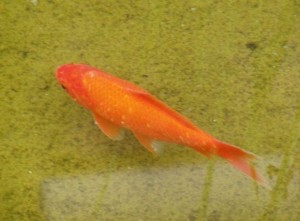 Goldfish have rights, so quit flushing them down toilets. In People v. Garcia, the defendant appealed his conviction on multiple charges arising from a domestic assault episode that included stomping on some poor kids’ pet goldfish.
Judge James Catterson’s opinion explored the intriguing legal question of whether goldfish qualify as “animal companions” under statutes imposing enhanced felony penalties for abusing such companions.
The opinion started with an interesting history of animal domestication:
The earliest known domestic animal appears to be the dog, a companion to mankind as early as 15,000 B.C. Goats, sheep, pigs and cows followed in domestication in the next ten thousand years. Horses, however, did not succumb to the lure of mankind’s presence until 4000 B.C. The domestication of fish is believed to have begun much later, in China during the Tang Dynasty, around 620 A.D. The common goldfish (Carassius Auratus), a member of the carp family that was first domesticated in China, is now the most commonly kept aquarium fish. The goldfish’s leap from domesticated fish to family pet and companion may have happened as early as 1368 during the Ming Dynasty. The goldfish’s popularity in the West began as the first public aquarium opened in London in 1853. Keeping goldfish as companions and pets in the United States has been popular since that time.
The criminal statute at issue defined “companion animal” as any dog or cat or “other domesticated animal normally maintained in or near the household of the owner or person who cares for such other domesticated animal.” The defendant argued that goldfish don’t qualify.
Here’s a healthy excerpt of Judge Catterson’s terse, well-reasoned analysis of the issue:
The defendant contends that a fish is not a companion animal because it is not domesticated and because there is no reciprocity or mutuality of feeling between a fish and its owner, such as there is between a dog or a cat and its owner.
[The defendant cites to Am. Jur. 2d, which] defines “domesticated animals” as those that “no longer possess the disposition or inclination to escape,” and claims that “if dropped in a pond and offered the opportunity to swim away, a goldfish will do so without any hesitation and not look back”. He maintains that the statute’s reference to “any other” domesticated animal limits “companion animals” to those that are similar to dogs or cats, that is, those with a degree of sentience sufficiently elevated to enable them to enter into a relationship of mutual affection with a human being. Furthermore, “[b]eloved household pets (fish) may be, but ‘companion animals’ in the same vein as dogs or cats they are not”.
The defendant’s contention that all household pets are equal but some are more equal than others is manifestly not derived from the statute. The Legislature simply did not require a reciprocity of affection in the definition of “companion animal.” To the contrary, the statutory language is consistent with the People’s contention that “domesticated” is commonly understood to mean “to adapt (an animal or plant) to life in intimate association with and to the advantage of humans”. Thus, a goldfish such as the one herein is a domesticated rather than a wild animal within the common meaning of the term. Moreover, the goldfish was, as the statute requires, “normally maintained in or near the household of the owner or person who cares for [them].” Indeed, acknowledging that the goldfish is one of the most common household pets, defense counsel stipulated at trial that there are “millions of fish owners throughout the country”.
The defendant’s argument that goldfish are not domesticated animals because given the opportunity they would leave home is without merit. While this trait arguably distinguishes fish from dogs and, probably to a lesser extent cats, it fails to take into account that many other animals commonly considered pets, such as hermit crabs, gerbils, hamsters, guinea pigs and rabbits, would depart for less confining venues and greener pastures if given the opportunity. Loyalty, if that is what it is, is merely another characteristic urged by defendant-but not included by the Legislature-as a defining feature of a companion animal.
Moreover, [the statute] provides that “[n]othing contained in this section shall be construed to prohibit or interfere in any way with anyone lawfully engaged in hunting, trapping, or fishing ….” (emphasis added). This provision would be superfluous if a fish could not be considered a companion animal.
— People v. Garcia, 29 A.D.3d 255, 257, 260–61 (N.Y. App. Div. 2006). Thanks to Dan Green.
November 24th, 2011  George W. Bush -- Sued by whales. Lawhaha.com obviously has great fondness for judges who liven up their opinions with humor and other writing spice, but a case from the U.S. Court of Appeals for the Ninth Circuit shows why judges need to exercise care in stirring in these ingredients.
In a suit brought against George W. Bush and Donald Rumsfeld on behalf of all whales, dolphins, and porpoises, the Ninth Circuit had to decide whether animals have standing to sue on their own behalf under the Endangered Species Act and other federal statutes.
The plaintiff was “the Cetacean Community,” a name chosen by the Cetaceans’ self-appointed attorney for all of the world’s whales, porpoises, and dolphins. The Cetaceans challenged the U.S. Navy’s use of low frequency sonar used to detect enemy submarines because the sonar harms marine life.
Bush and Rumsfeld moved to dismiss on the ground that the animals lacked standing to bring suit. The district court agreed and dismissed the action.
The animals appealed, relying on a statement made in a previous environmental case—Palila v. Hawaii Dep’t of Land and Natural Resources—in which the Ninth Circuit had indicated that an endangered member of the honeycreeper family, the Hawaiian Palila bird, had standing to sue on its own behalf. The specific language was that the bird “has legal status and wings its way into federal court as a plaintiff in its own right.”
The court had to decide whether the Palila language was binding precedent or only loose dicta. It ruled it was the latter, calling the statements “little more than rhetorical flourishes.”
With respect to the substantive issue, the court added that “It is obvious that an animal cannot function as a plaintiff in the same manner as a juridically competent human being.” Hmm, perfect entry for making a political joke about one of the defendants, but we try to stay apolitical.
The fact that courts have held monkeys, whales, and assumely all other non-human species (along with their human champions) lack standing to seek protection from the judicial system raises a troubling question: Who’s left to look out for them?
— Cetacean Cmty. v. Bush, 386 F.3d 1169 (9th Cir. 2004). Thanks to Daniel Green.
November 24th, 2011 Ohio Court of Appeals Judge Mark Painter combined humor and common sense in Gibson v. Donahue, where the plaintiff was injured being thrown from her horse, which was spooked by two Irish Setters that the defendant allowed to run free in an area restricted to equestrian use.
Talk about creative lawyering. The defendant tried to escape liability by relying on an Ohio statute intended to provide tort immunity for riding stable owners and horse show operators for injuries resulting from the inherent risks of equine activity (a statute Painter said “is noteworthy mainly for using the word ‘farrier’ ten times”).
Judge Painter observed that the case was one of first impression, “probably because no one before has been audacious enough” to try to extend the statute to a situation like this one.
Defendant did have a slim statutory leg to stand on. The statute extends immunity to “an equine activity sponsor, equine activity participant, equine professional, veterinarian, farrier, or other person.” However, Judge Painter said that for defendant’s construction to prevail, the statute would have to be read as applying to “any other person in the whole world.” Construed as defendant argued, “[a] person who negligently crashes an airplane into the crowd at an equine event would thus be immune to liability.”
By the way, a farrier is a blacksmith. Remember that if you’re a law student in Ohio. It might be on the bar exam.
— Gibson v. Donahue, 772 N.E. 2d 646, 648, 650 (Ohio Ct. App. 2002).
November 24th, 2011  Ohio Court of Appeals Judge Mark Painter writes some amusing opinions. He had a bit more leeway to let loose back when he was a municipal judge presented with some highly unusual fact patterns. Ohio Court of Appeals Judge Mark Painter writes some amusing opinions. He had a bit more leeway to let loose back when he was a municipal judge presented with some highly unusual fact patterns.
In State v. Kirchner, the defendant was charged with aggravated menacing and resisting arrest. It all started just because he wanted to hang out one night at home with some friends–with a five-foot dead snake nailed to his door. Read on and enjoy:
The evidence adduced presented, at the very least, a bizarre situation. Cincinnati Police Officers Randy Froehlich and Steve Means received a radio dispatch to an address … in the “Over-the-Rhine” section of Cincinnati. The reason for the dispatch was “man nailing snake to door.”
Upon the officers’ arrival … they did in fact discover a five-foot-long black snake which had been nailed through its head to the door of defendant’s apartment. Though the record is silent on the point, assumedly the snake was deceased.
Quite naturally, the officers knocked on defendant’s door, which defendant answered, and sought to question defendant concerning the snake. The officers asked if they could come in and talk with the defendant, to which he replied, “no.” The entire situation deteriorated from that point forward, resulting in the events in this court.
Quite obviously, the defendant had a right, under the Fourth Amendment to the United States Constitution, to refuse to allow the officers to enter absent a warrant or perhaps exigent circumstances, which did not exist in this case. Of course, a prudent man would have talked with the officers to resolve the situation, but the Constitution applies to both prudent and imprudent men.
Defendant testified that the snake was not his, he had not nailed it to the door, and since it was not his snake, he did not believe it to be his responsibility to remove it. Defendant believed that the caretaker of the apartment building would eventually remove the snake, which had been hanging for approximately eight hours. Defendant did not wish to converse with any police officer, because he and his friends were engaged in a social visit, involving the use of Wild Irish Rose wine.
[A struggle ensued when the defendant stepped back and put his hands on his hips. A folding knife in a sheath was on his belt. The officers interpreted his movement as “going for” the knife. They drew their weapons, disarmed and arrested the defendant.]
The question remains as to what, if any, laws the defendant had violated. It might be noted that no charges were filed against anyone in connection with the mistreatment of the snake. Under Cincinnati Municipal Code Section 701-11, “[n]o person shall … cruelly beat, mutilate … any animal …..” An “animal” is defined … as follows: “‘[a]nimal’ shall, for the purposes of Sections 720-11 and 720-13, mean and include every living dumb creature.” The above definition would obviously include a snake, though the inartful wording might imply that it would be perfectly legitimate to torture a talking parrot. Be that as it may, since the defendant denied nailing the snake to the door, the officers were evidently not able to determine the identity of the nailor, the nailee obviously being unable to testify.
We do not find that defendant’s actions … constitute the crime of aggravated menacing. Perhaps the entire matter could be classified under “aggravated foolishness,” though there is no section in the Revised Code proscribing such conduct. If there were, our jails would be a great deal more crowded than they are presently.
Judge Painter found sufficient evidence to support a conviction of the defendant for resisting arrest.
— State v. Kirchner, 483 N.E.2d 497, 498–99 (Ohio Mun. 1984).
November 22nd, 2011 Good news if you’re involved in a legal dispute with a monkey. The primate–not you, the other one–lacks standing to sue.
That’s the short answer in a long opinion from the 73rd Judicial District Court in Bexar County, Texas in which nine chimps and monkeys sued their keeper.
Ohio State University (OSU) entered into an agreement with Primarily Primates, Inc. (PP), a Texas entity, to transfer ownership of nine chimpanzees and three new world monkeys. In return for PP agreeing to provide lifetime care for the primates, OSU agreed to pay a substantial amount to construct a facility for them and to provide an endowment to help care for them.
After the primates were shipped to PP, two of them died and a third escaped from its cage. A couple months later, attorneys purporting to represent the remaining primates (named Sarah, Harper, Emma, Keeli, Ivy, Seba, Darrell, Rain and Ulysses) filed suit against PP alleging breach of contract.
But the court held the monkeys did not have standing to bring suit and affirmed the trial court’s dismissal of the action. Adding three humans as “interested parties” didn’t help save the monkeys’ case.
Hope those monkeys and chimps are okay.
Meanwhile, Senior Judge James Barlow, San Antonio, TX, longtime supporter of lawhaha.com, commented in a letter that he “did not think we should encourage making Texas the dumping ground for a bunch of Yankee chimps to start with.” But, he added, that was a policy question.
— Sarah v. Primarily Primates, Inc., 255 S.W.3d 132, 135–36 (Tex. App. 2008). Thanks to Judge Barlow.
November 21st, 2011 Would a reasonably prudent dog batter a postal worker, negligently knock over a vase with a wagging tail or trespass on property to urinate or defecate?
Maybe we’ll find out, now that a court has held that a dog in a dog-bite case was to be judged by a “reasonable dog” standard.
In Kirkham v. Will, an Illinois intermediate appellate court held that, in deciding whether the defense of provocation applied in a dog-bite case, the appropriate test to apply was the “reasonable dog” standard; that is, how a reasonable dog would have reacted to the plaintiff’s presence under similar circumstances.
How a reasonably prudent person would have behaved under a given set of circumstances is one of the great imponderables of tort law that jurors, law students, lawyers, judges and law professors struggle with every day. Despite manifold attempts to define the standard, answers remain elusive.
We entrust the decision to jurors because they presumably know how reasonable people would act. Are they competent to determine how reasonable dogs would act? I can see it now, ads for expert witnesses in “Canine Behavior.”
— Kirkham v. Will, 724 N.E.2d 1062, 1065 (Ill. App. Ct. 2000). Thanks to Darius Asly.
November 17th, 2011  It's a dog-eat-divinity student world. A dog-bite case against the dean of the Yale Divinity School by a divinity student gave U.S. District Judge Gerard Goettel a chance to “let the dogs out” in an opinion leaving no possible wordplay on dogs unpenned or unpunned.
The main issue was whether the Yale Divinity School could be held strictly liable under the Connecticut dog-bite statute as a “keeper” of the dean’s offending canine, Rocky, a Labrador, because the dog was permitted to roam free in common areas of the divinity school residences and chapel.
The court held the dean strictly liable, but let the school off because it didn’t “control” the dog’s activities.
Here’s a compendium of Judge Goettel’s fun canine puns:
“In this dog eat dog world, anything is fair game for litigation in the federal courts.”
“As compensation for her injuries, plaintiff seeks to take a bite out of the defendants’ pocketbooks.”
“[The plaintiff], now an Episcopal priest with her own ministry, obviously has a bone to pick as her injuries required substantial medical care, and Rocky is clearly in the doghouse.”
“In dogged pursuit of damages for her trauma, she filed this suit ….”
“Hounded by Connecticut’s [dog-bite statute] ….”
“The [individual defendants] do not deny that they were keeping Rocky who apparently was not licensed to anyone but had a nose for trouble.”
“Plaintiff’s analysis is essentially the tail wagging the dog.”
“Rocky’s having access to common areas, without more evidence indicating an intent to give refuge to the dog or to control the dog’s activities on the part of the School is not a sufficient basis to collar the Divinity School.”
As for Rocky, we don’t know his fate, but the judge did offer a weak defense for the nice face-biting doggie in a footnote:
1. There is no indication that Rocky, like the dog in Oliver Goldsmith’s Elegy on the Death of a Mad Dog, “to gain some private ends, went mad and bit the [wo]man.”
— Post v. Annand, 798 F. Supp. 189, 190–91 & n.1, 192 (S.D.N.Y. 1992). Thanks to Lillian Gustilo.
November 7th, 2011  "Am looking for a good lawyer. Can pay in acorns. Hit me up." Appellate Judge Joseph Hudock of the Superior Court of Pennsylania treated us to a classic in a case involving a poor little persecuted squirrel named Nutkin.
For an alleged questionable motive (explained in the opinion), the state decided to prosecute Nutkin’s owner for keeping the squirrel as a family pet in violation of Pennsylvania wildlife laws. The good news is that Nutkin and the owner won. The better news is Judge Hudock’s opinion. This one is worth reading in full. Here are the opening paragraphs to give you a taste:
1. This appeal revolves around the life and times of Nutkin the squirrel.
2. Nutkin’s early life was spent in the state of nature ferrae naturae, in the state of South Carolina, and, as far as we can tell, in a state of contentment. She apparently had plenty of nuts to eat and trees to climb, and her male friends, while not particularly handsome, did have nice personalities. Life was good.
3. Then one day tragedy struck: Nutkin fell from her tree nest!
4. But fate was kind. Nutkin was found and adopted by Appellant and her husband who, at that time, were residents of South Carolina. Appellant lovingly nursed Nutkin back to health, and Nutkin became the family pet. . . . Life was good again.
5. Nutkin’s captivity and domestication were perfectly legal in South Carolina, possibly a reflection of that state’s long tradition of hospitality to all.
6. In 1994, Appellant and her husband moved to Pennsylvania and brought Nutkin with them. Life was full of promise.
7. Dark clouds began to gather, however … [when the mean old state of Pennsylvania came into the picture and tried to take Nutkin away].
. . .
9. Nutkin would then learn the shocking truth that the cheery Pennsylvania slogan “You’ve got a friend in Pennsylvania” did not apply to four-legged critters like Nutkin.
If you track down the full opinion, keep an eye out for the funny analogy Judge Hudock draws between old squirrels and old appellate judges.
— Commonwealth v. Gosselin, 861 A.2d 996, 997–98 (Pa. Super. Ct. 2004). Thanks to Ryan Kriger.
November 6th, 2011  City of Canadian v. Guthrie City of Canadian v. Guthrie is a sad, strange tale of a one-eyed horse ordered by the town mayor to be executed by one Panhandle Pete, who took the mare’s life “by shooting her between the bad eye and the one not so bad.” In an opinion that makes you wonder whether someone dosed the town’s water supply with LSD (although it wasn’t yet invented), Chief Justice Hall explained “when Panhandle Pete’s pistol popped, she petered, for which the poundkeeper paid Pete a pair of Pesos.”
The owner of the horse sued for damages, claiming she was a prize mare. The court took issue with that assertion, describing the horse as follows:
From the record, we conclude that although she may not have had a skin you would particularly love to touch (though she had seen only fourteen joyous summers), yet she had a skin which clung like ivy to her rafters with a beautiful corrugated effect upon the sides of her lithe and spirituelle form.
The horse got in trouble for wandering onto neighboring property and eating the foilage, or as Justice Hall put it (paragraph breaks inserted):
The record shows that upon at least two occasions “When night drew her sable curtain down And pinned it with a star,” and “Silence like a gentle spirit Brooded o’er a still and pulseless world,” the time lock on her corral mysteriously went off and so did she, in search of tulips, dahlias, and gladioli in the neighboring lawns and flower beds …
Although she had only one eye, appellant contends she could find more edible shrubbery in a single night than an experienced landscape gardener could replant in thirty days. We may assume that in her midnight excursions she had been thrown with porch climbers, joy riders, orchard raiders, and other nocturnal prowlers, which may account for her waywardness and utter disregard for the property rights of other. …
It was not denied that she had “went hence” and was cut down in the heyday of her young and fitful life … [because the mayor] personally ordered her gentle soul sent to the great beyond and the remainder to the municipal dump ground.
The court finally dismissed the case for lack of jurisdiction.
— City of Canadian v. Guthrie, 87 S.W.2d 316, 317–18 (Tex. Ct. App. 1932). Thanks to John R. Thomason.
October 15th, 2011  Poopi the poodle and her owners sued their veterinarian after Poopi underwent anesthesia for teeth cleaning and woke up with a three-inch scar on her abdomen. The vet mistakenly tried to spay Poopi, even though she had already been spayed as a puppy. Poopi the poodle and her owners sued their veterinarian after Poopi underwent anesthesia for teeth cleaning and woke up with a three-inch scar on her abdomen. The vet mistakenly tried to spay Poopi, even though she had already been spayed as a puppy.
Poopi’s owners sought emotional distress damages for themselves as well as for Poopi, including expenses for Poopi’s psychological care. Plaintiffs conceded that under Ohio law dogs are considered to be personal property, but argued that the court should “do the right thing” by distinguishing pets from inanimate objects. They quoted from a law review article that equated the death of a “companion animal” to “the wrongful killing of any other family member.”
The Ohio Court of Appeals affirmed the trial judge, which had rejected the claim, although one member of the appellate panel concurred “reluctantly” and suggested that the legislature consider allowing damages for tortious injuries to pets.
Now that the suit has been wrapped up, perhaps Poopi should consult independent counsel about the possibility of pursuing emotional distress of having to go through life named “Poopi.”
— Oberschlake v. Veterinary Assoc. Animal Hosp., 785 N.E.2d 811 (Ohio Ct. App. 2003).
|
Funny Law School Stories
For all its terror and tedium, law school can be a hilarious place. Everyone has a funny law school story. What’s your story?
|
Product Warning Labels
A variety of warning labels, some good, some silly and some just really odd. If you come encounter a funny or interesting product warning label, please send it along.
|
Tortland

Tortland collects interesting tort cases, warning labels, and photos of potential torts. Raise risk awareness. Play "Spot the Tort." |
Weird Patents
Think it’s really hard to get a patent? Think again.
|
Legal Oddities
From the simply curious to the downright bizarre, a collection of amusing law-related artifacts.
|
Spot the Tort
Have fun and make the world a safer place. Send in pictures of dangerous conditions you stumble upon (figuratively only, we hope) out there in Tortland.
|
Legal Education
Collecting any and all amusing tidbits related to legal education.
|
Harmless Error
McClurg's twisted legal humor column ran for more than four years
in the American Bar Association Journal.
|
|
|













